Whether you call it co-sleeping, having a family bed, or bedsharing, more and more families today are sleeping together. It's been a popular practice for years in many other parts of the world, but here in America, views are split. Some parents think sharing a bed creates a dangerous sleeping environment for a baby. (Not to mention puts a serious cramp in their sex life.) Other moms swear this close-in arrangement makes for a happier, healthier baby.
So how do you make the choice? Should baby come to bed with you or have their own, personal sleeping space?
Here, we break through the speculation (and there is a lot) to give you some hard scientific facts about co-sleeping.
Number two may be shocking to some moms; was this the case in your house?
Image via Suetlana Fedoseyeua/shutterstock
Family Bed Babies Breastfeed Longer
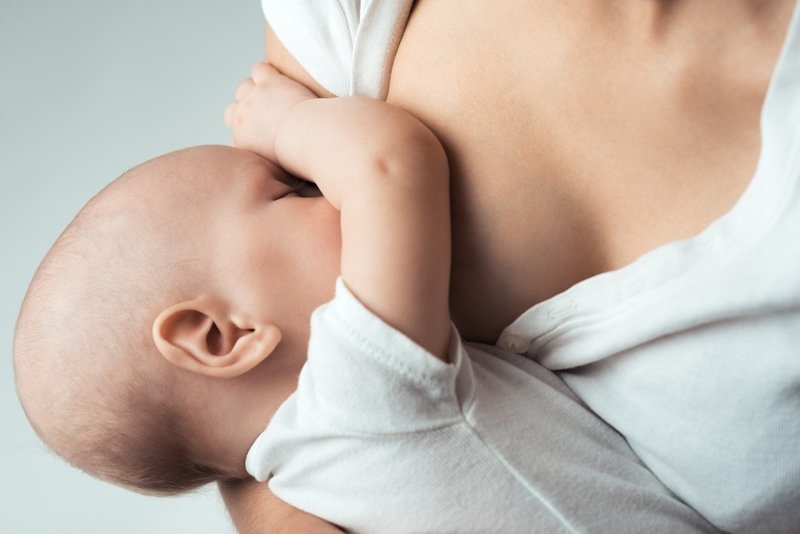
You already know that breastfeeding is super-beneficial to your baby's health. But did you know that co-sleeping might encourage you to do so?
When researchers at the University of Durham interviewed over 250 families with new babies, they found that moms who began breastfeeding babies in their first month of life were twice as likely to still be breastfeeding three months later … that is if they were co-sleeping.
More from The Stir: 8 Surprising Scientific Facts About Breastfeeding
Co-Sleeping Moms Sleep Better
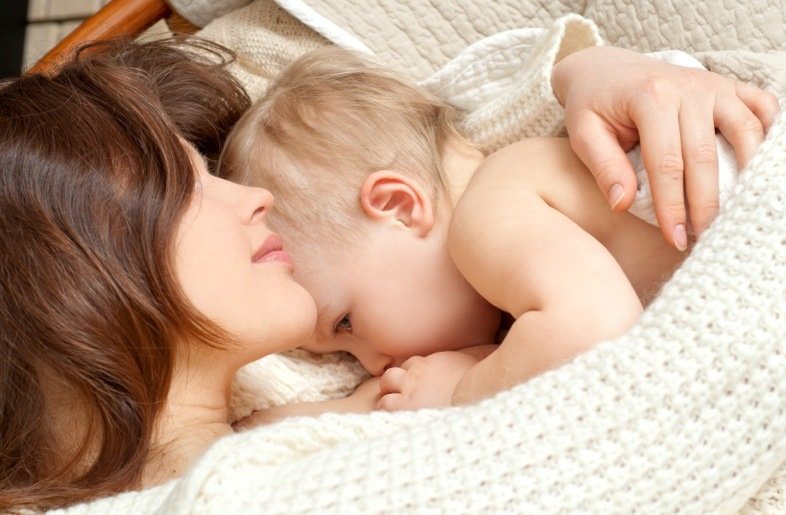
This alone might be enough to convince you to give the family bed a try. (We'll keep it short. We know you're tired.) An East Tennessee State University study found that breastfeeding moms who co-sleep actually got more sleep during a 24-hour period than moms who bottle-fed their babies.
More From The Stir: Quiz: How Much Do You Really Know About Attachment Parenting?
... But Co-Sleeping Kids Sleep Worse
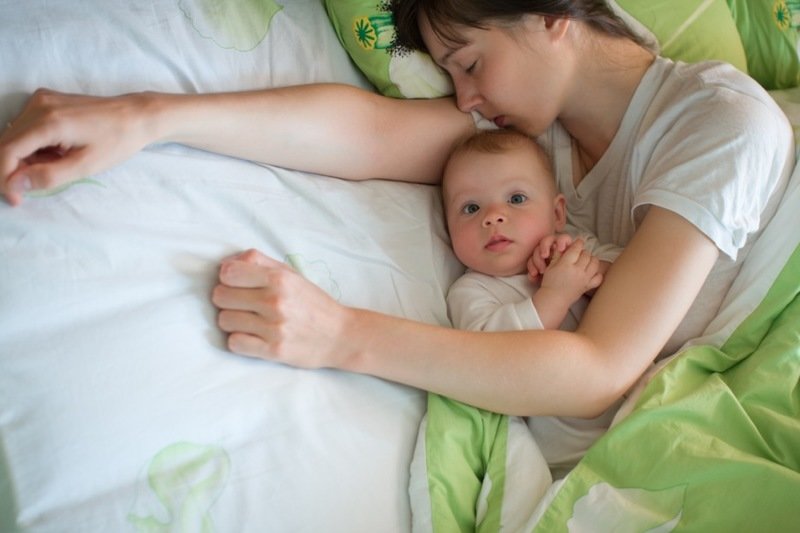
Good news for Mom isn't necessarily good news for kids.
According to one study published in Pediatrics, kids who share a family bed are more likely to experience trouble getting to sleep and night waking. Researchers interviewed more than 300 parents of 2- to 3-year-olds, half of whom said their kids slept in their bed at least occasionally, and for at least part of the night. One year after the study ended, the bed-sharing kiddos still had frequent sleep issues, compared to kids who had begun sleeping in their own beds.
Smoking and Co-Sleeping Don't Mix

Surprise, surprise: an eight-year study in Dublin found that moms who co-sleep increase their baby's chances of Sudden Infant Death Syndrome (SIDS) by a factor of four. If they were smokers as well, the risk of SIDS became seven times greater.
Other factors that also put co-sleeping babies at risk: heavy clothing and bedding, and infants who had a low birth weight.
Co-Sleeping Kids Grow Up to Be More Independent

Psychologists at the University of California, Irvine, found that toddlers who had routinely co-slept from birth were more independent and even better able to solve problems when they were alone. The opposite was true for kids who had always slept by themselves.
More From The Stir: 13 Surprising Scientific Facts About Siblings
The Family Bed May Bring on Asthma
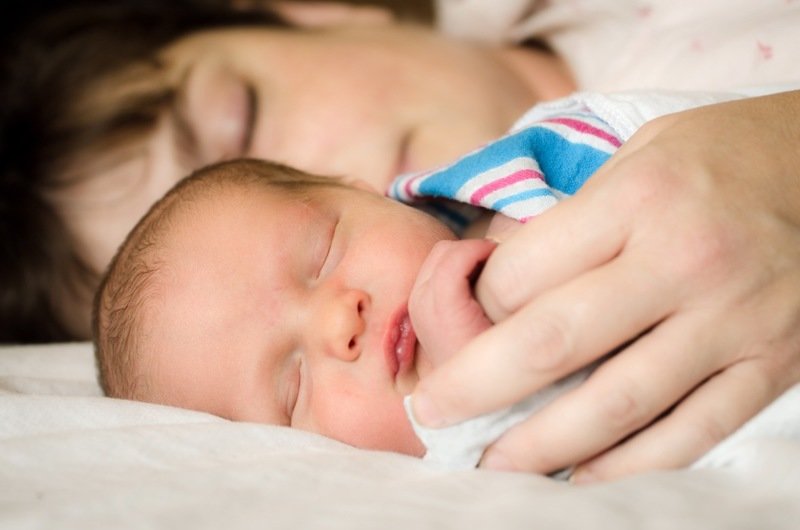
You're in the clear if you are co-sleeping with a baby who will soon move to the crib, but beware! Toddlers who share a bed with their parents may have a higher risk of asthma in later childhood. For six years, researchers at Erasmus University Rotterdam in the Netherlands collected info, including about sleep habits, from more than 6,000 moms and their kids.
Interestingly, the results showed that kids who were still sleeping with their parents at 24 months were at higher risk of being diagnosed with asthma at age 6, although the reason isn't yet clear.
Bed-Sharing Makes Better Dads
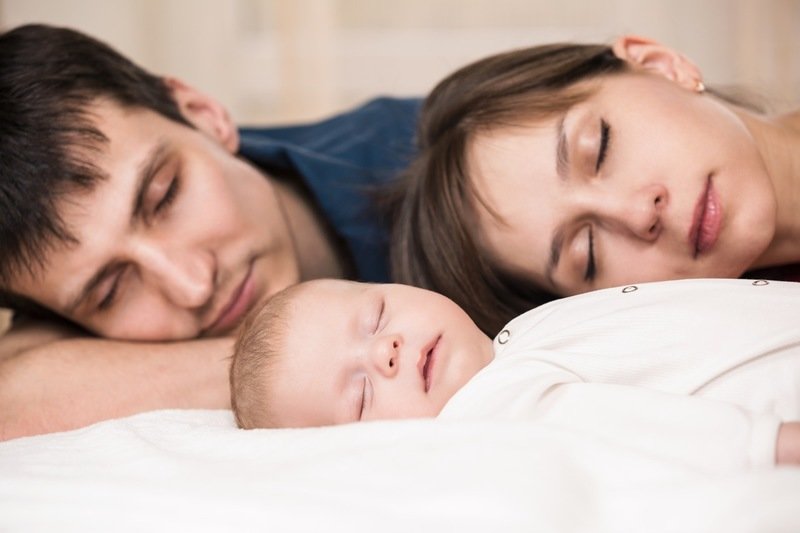
Here's a surprise benefit of the family bed: It could make for more responsive fathers. Northwestern University researchers studied nearly 400 young dads in the Philippines and discovered that dads who co-slept with their kids had lower testosterone in the evenings. Since high levels of the "male hormone" have been linked to aggression and extreme risk-taking, researchers see this as a boon for the baby.
Sharing a Bed Means Less Stressed Kids

Scientists at Radboud University in the Netherlands found that co-sleeping babies had lower spikes of cortisol — "the stress hormone" — when exposed to distressing situations than did solitary sleepers. In another study, researchers at University of East Anglia Norwich in the UK found that kids as old as 8 who were still sleeping in their parents' bed also had lower stress levels.
Co-Sleeping Kids Have Better Sex (As Adults!)
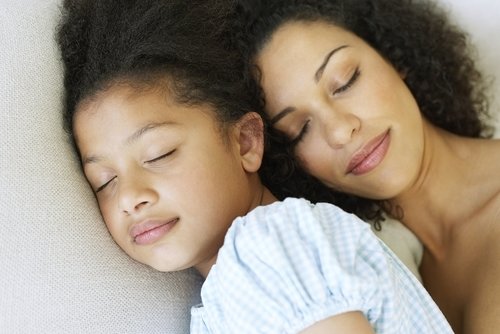
Think co-sleeping makes kids clingy? Think again.
According to University of Notre Dame researchers, male college students who co-slept with parents until the age of 5 had higher self-esteem, experienced less guilt and anxiety, and even reported having more sex than their peers. (Bet you didn't see that one coming.) For women, co-sleeping as a child translates into higher self-esteem and more ease with affection.
More From The Stir: 8 Mom-Approved Books on Puberty That Kids Will Actually Like
Bedsharing Babies May Breathe Less
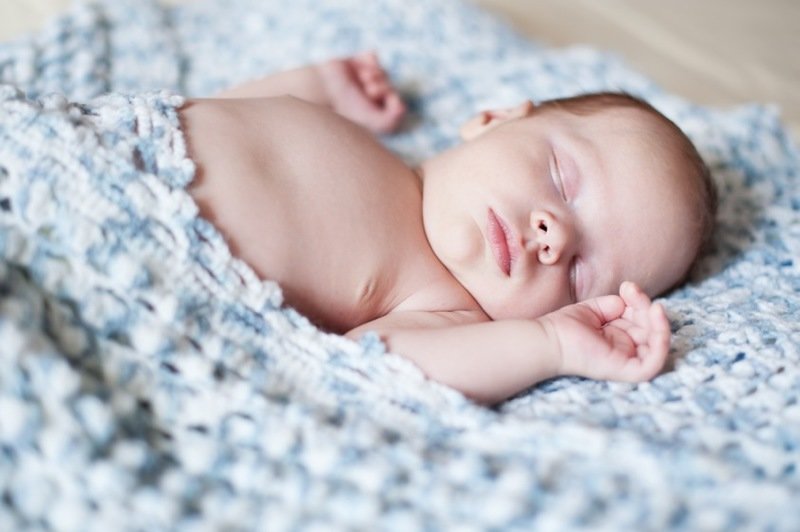
Strange but true: co-sleeping can actually increase the number of times a baby's oxygen levels drop throughout the night, causing them to rebreathe air they already exhaled. One reason for this, according to New Zealand researchers: the family bed is a much warmer environment for an infant.
Although the babies in the study were able to increase their breathing to stay safe and the mothers were alert enough to move bedding away from the babies' heads when needed, not all parents may be as responsive.




